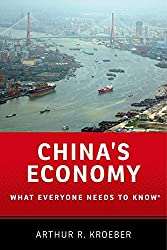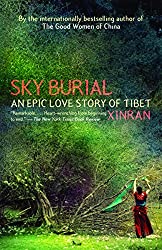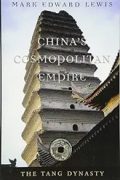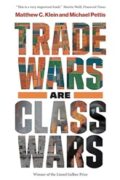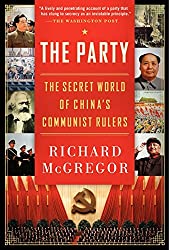
Rating: 7.5/10.
The Party: The Secret World of China’s Communist Rulers by Richard McGregor
Book by an Australian journalist describing the inner workings of the Chinese Communist Party. The politburo (“The Party”) is a secretive organization, out of sight of the common people. It comprises of only a handful of elite individuals, who are seldom seen in public together, but nevertheless have ultimate power over the policies of the entire country of China. Party decisions are made behind closed doors, as well as selection of new members (mostly men in their 60s) through political connections. The Party has been responsible for the miraculous economic growth of China since the 1980s, through indirect control of the state government, corporations, etc. Each chapter of the book describes some aspect of the Party’s relationship with the Chinese government and society, using anecdotes from high profile cases, mostly from the 2000s.
The Party does not take direct control of companies’ operations (which would be too complicated to manage), but appoints executives to ensure if operational efficiency and obedience. Executives at top companies have little actual power, since they are under control of the party at all times. In one case, the Party performed a three-way swap of the CEOs of China’s three biggest telecom companies, to ensure that they do not build up our foundation of power within their own organizations to subvert the party rule.
One organization not directly controlled by the Party is the People’s Liberation Army (PLA) – the army is a separate branch of power. This was evidenced by the debates between President Jiang and the army over the invasion of Taiwan (his successor Hu favored a more moderate approach rather than invasion). Nonetheless, during the critical events in the summer of 1989, the army protected the Party, and the PLA does not get a voice in the media to avoid contradicting the party in public.
Shanghai traditionally maintained some degree of political independence from the Chinese government. However, Shanghainese politicians were corrupt, and despite the city’s rapid economic growth, most people did not benefit from it, only the officials. The structure of political institutions made it difficult to conduct investigation of high-ranking officials. However, a scandal emerged where in where corrupt politicians unfairly took private property from people, attracting the attention of the Party, and resulting in several high-ranking officials being arrested.
Local governments operate relatively independently from the central government in Beijing. Although they rarely disagree with the Party on political issues, they often only follow the central directive loosely when it comes to economic policy, favoring decisions that are more beneficial locally. One high profile case was the Sanlu milk powder scandal, where contaminated milk powder poisoned thousands of babies – the Sanlu executives as well as local officials in the city of Shijiazhuang tried to cover up the case to avoid negative effects on their own careers. However, the extent of the disaster was worse than what anyone had anticipated, and the central government quickly stepped in, delivering punishment to the responsible officials.
In the economic reforms of the 1980s, Deng realized the futility of communism as economic system and the importance of private enterprise, but still needed to maintain control over entrepreneurs so that they don’t start to accumulate too much power. Thus, entrepreneurs must be politically savvy and maintain good relationships with the Party, often handing over partial ownership of the company to the government. Entrepreneurs that attempt to fight the Party inevitably end up in trouble and officials find a way to charge them with some kind of crime.
The final chapter focuses on the Party’s control over the media and the historical narrative. For many politically sensitive events going back to about 1840, the Party ensures that the media and journalists stick to the politically correct version of the facts. One brave journalist managed to gather information surrounding the Great Chinese Famine of 1959-1961 from provincial archives (under the guise of researching grain production), and published the book in Hong Kong, whereas many other journalists were arrested for disagreeing with the facts.
Through many case studies and anecdotes, this book paints a detailed picture of the Party’s influence in the upper echelons of Chinese society. Each example, no matter how powerful you are, there will be trouble if you go against the Party. At the same time, most citizens will never directly experience coercion from the Party and live their lives in peace. One weakness of the book is that it was published over 10 years ago, before the reign of Xi Jinping, and a lot has changed in China since then.
